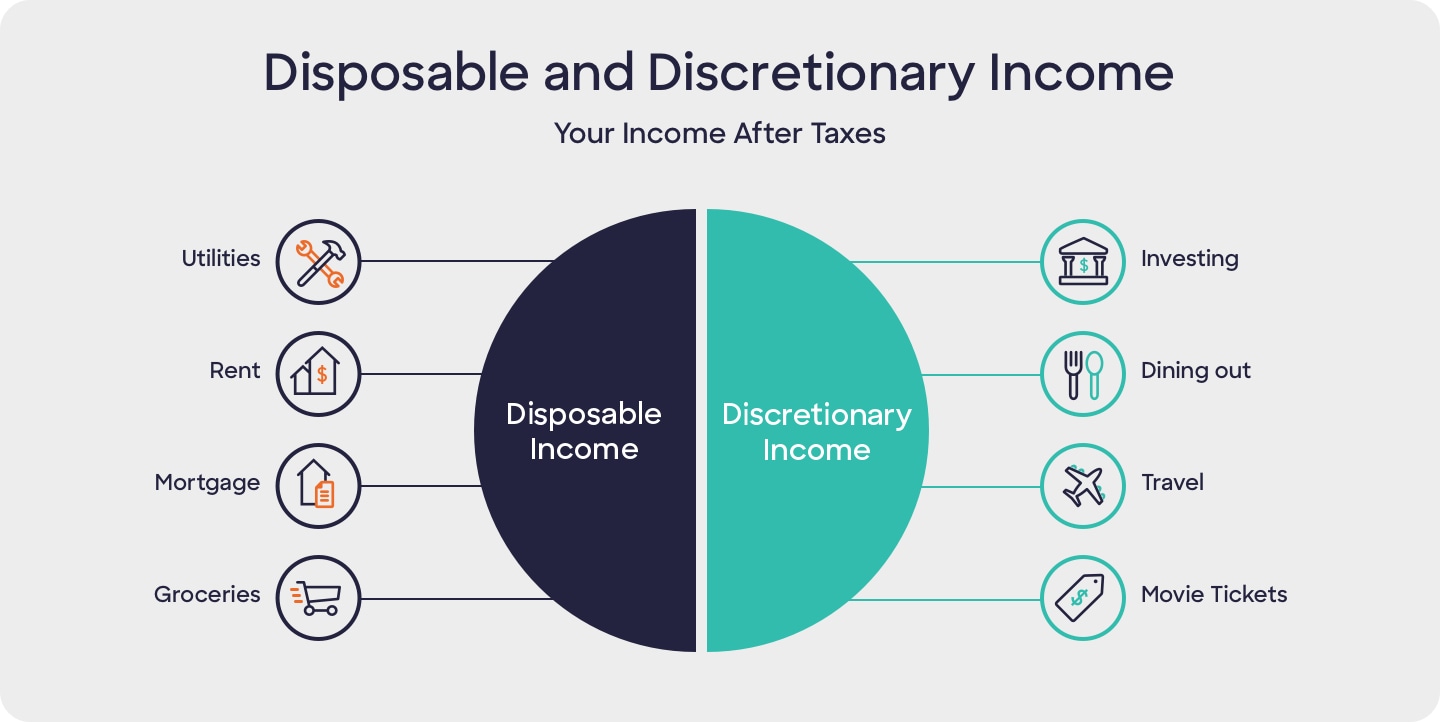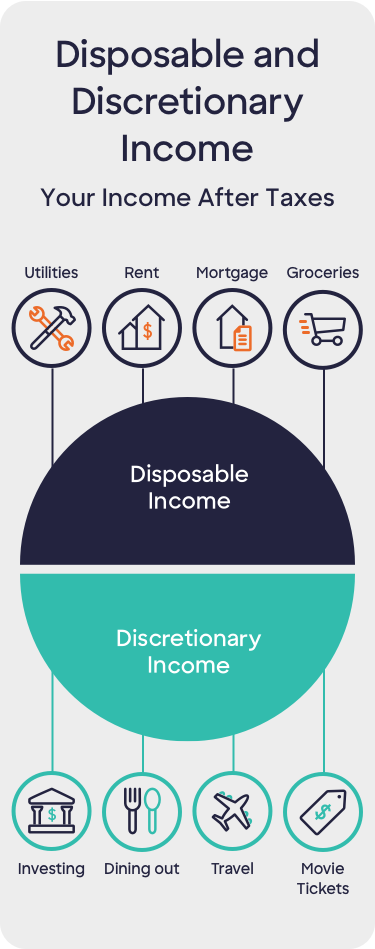When it comes to personal finance, discretionary income plays an important role. You can think of it as the money left in your pocket after you take care of the essentials like utilities, gas, and housing. You can use this for spending, investing, or saving.

What is Discretionary Income?
6 min read
Last Updated: March 6, 2025
Next steps

See if you're pre-approved

View all Discover credit cards
See rates, rewards and other info
You may also be interested in
Was this article helpful?
Was this article helpful?






